Agency joins national observance of March as Problem Gambling Awareness Month
While the national observance of March as Problem Gambling Awareness Month is 31 days long, Maryland Lottery and Gaming promotes responsible play 365 days a year, whether the gaming takes the form of Lottery scratch-offs, casino games, sports wagering or daily fantasy sports.
Maryland Lottery and Gaming shares information on confidential, free and low-cost problem gambling resources with Marylanders, manages a Voluntary Exclusion Program for self-identified problem gamblers and mandates that all employees and Lottery retailers receive training to assist players.
“Promoting responsible play is something we’ve integrated into all aspects of our operations,” said Maryland Lottery and Gaming Director John Martin. “Whether our players are enjoying Lottery games, casino games or sports wagering, we want them to keep it fun and stay within their entertainment budget limit.”
Maryland Lottery and Gaming joins the National Council on Problem Gambling (NCPG) and Maryland Center of Excellence on Problem Gambling in observing Program Gambling Awareness Month.
The Agency encourages everyone to keep their game play fun and entertaining, and to learn about the games we offer. For example, the Maryland Lottery’s website lists the odds of winning for each of our games. Players are encouraged to take a look before they play, to set a limit on the amount they wager and know their limits.
With sports wagering now a reality in Maryland, the Agency is responsible for reviewing and approving responsible gaming plans for all sports wagering facilities and mobile operators. Also in progress is an expansion of the Agency’s Voluntary Exclusion Program (VEP).
“We will be launching both sports betting and daily fantasy sports voluntary exclusion programs soon,” said Jasmine Countess, Maryland Lottery and Gaming director of responsible gambling. “In total, we will offer five exclusion programs: casino, lottery, instant bingo hall, sports betting and daily fantasy sports.”
The sports betting VEP will allow individuals to exclude themselves from in-person and mobile sports wagering. The daily fantasy sports program will exclude participants from participating in daily fantasy sports, which operate online.
Maryland’s six licensed casinos pay annual assessments to support responsible gaming programs, such as problem gambling treatment. In Fiscal Year 2021, these assessments totaled more than $4.1 million. As a result of this funding, Maryland residents are eligible to receive no-cost problem gambling counseling by calling or texting the Maryland Center of Excellence on Problem Gambling’s Helpline at 1-800-GAMBLER (1-800-426-2537). Individuals and their family members can also receive help by going to helpmygamblingproblem.org, a website specifically set up to help those struggling with, or impacted by, problem gambling.
“Although many can gamble recreationally without problems, there are others who struggle with problematic gambling behaviors which not only negatively impact them, but also affect others around them,” said Mary Drexler, MSW, program director, Maryland Center of Excellence on Problem Gambling. “If you, or someone you know is struggling with problems caused by their gambling, we can connect you to a number of resources, including no-cost counseling or a Peer Support Specialist for a conversation with ‘someone who has been there.’”
To join NCPG in promoting March as Problem Gambling Awareness Month, the Maryland Lottery will again launch an advertising campaign with a “Play Responsibly” theme, as well as a “Play Responsibly” page on mdlottery.com. The ads will appear on television, radio stations across the state as well as on billboards.
As part of its ongoing commitment to a culture of corporate social responsibility, Maryland Lottery and Gaming earned Level 3 certification from the World Lottery Association (WLA), the lottery industry’s international leader in responsible gambling standards. The Agency is currently pursuing Level 4, the WLA’s highest certification, by documenting its ongoing efforts to enhance and expand its emphasis on responsible play and implement new initiatives and messaging programs. The Agency will submit its application for WLA Level 4 status this spring.
All of these efforts build on Maryland Lottery and Gaming’s 2010 creation of the Maryland Alliance for Responsible Gambling (MARG) in partnership with the Center of Excellence and other stakeholders. MARG provides a forum for ongoing collaboration and communication between the gaming and problem gambling treatment communities. For more information and resources, visit MARG’s website, mdgamblinghelp.org.
Problem Gambling Awareness Month Statements from Maryland’s Casino Partners
Horseshoe Casino: “At Horseshoe Baltimore, we believe that the promoting of responsible gaming is the foundation of our Code of Commitment. It spells out the principles that govern the way that we do business and it’s something that we take great pride in. Our position on this issue is clear: We want everyone who gambles at our casino to be there for the right reasons — to simply have fun.”
Live! Casino & Hotel: “We are committed to doing all we can to promote responsible gambling and are proud to join the Maryland Lottery and Gaming Control Agency, Maryland Center of Excellence on Problem Gambling, Maryland Department of Health and the Maryland Alliance for Responsible Gambling to spread awareness and share resources for those facing problem gambling.”
MGM National Harbor: “MGM Resorts has a long and storied history of supporting responsible gaming efforts in our casinos and sportsbooks, and we are proud to support the NCPG’s efforts in addressing problem gambling. GameSense has been an instrumental part of the MGM Resorts guest service model since 2017, helping customers understand the risks, where to get help and, ultimately, how to keep gaming fun.”
Ocean Downs Casino: “Our goal at Ocean Downs is to increase our team awareness of problem gambling issues and to provide tools to team members that are useful to guests who may be experiencing problem gambling issues.”
About the National Council on Problem Gambling
NCPG is the national advocate for people and families affected by problem gambling. NCPG works with all stakeholders to promote responsible gambling. For information, visit ncpgambling.org.
About Maryland Lottery and Gaming
Maryland Lottery and Gaming is a state agency that operates the Maryland Lottery and is responsible for the oversight of the state’s six casinos. For Lottery information, visit mdlottery.com. Casino information is available at mdgaming.com. Please play responsibly and within your budget.
About the Maryland Center of Excellence on Problem Gambling
The Maryland Center of Excellence on Problem Gambling (the Center), is a program of the University of Maryland School of Medicine and funded by the Maryland Department of Health Behavioral Health Administration, promotes healthy and informed choices regarding gambling and problem gambling. For further information, visit mdproblemgambling.com.


